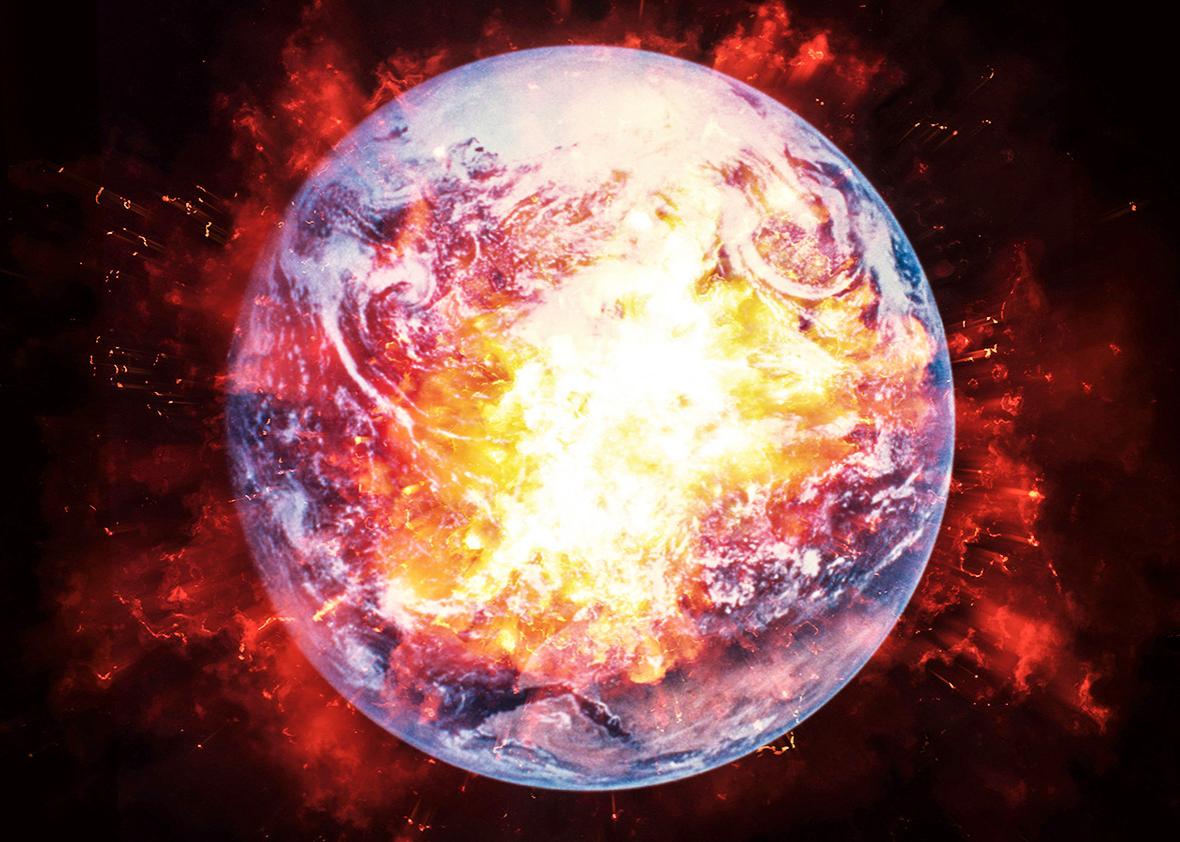Of all the reasons to fear a Donald Trump presidency—and there are plenty—one of the most momentous, and least appreciated, is the irrevocable damage he could wreak on the planet.
Trump’s stances on climate and energy received shamefully little attention throughout the campaign, partly because he barely bothered to articulate them. His avoidance was enabled by the national mainstream media, whose representatives allowed three presidential debates to come and go without asking the candidates a single direct question about what might be the most pivotal issue of our time. Nonetheless, his views on climate change are clear to anyone who cares to look for them.
First of all, he’s claimed he doesn’t believe it’s real. As Hillary Clinton pointed out in the initial debate, Trump has called climate change a hoax perpetrated by and for “the Chinese.” Trump has reflexively denied saying such a thing, though this particular lie is rather easily debunked by his own inconvenient tweet.
Trump later tried to backtrack, calling his 2012 claim a “joke,” although he proceeded to reiterate the China dig in his next breath. In any case, as PolitiFact and others pointed out, Trump “has a lengthy record of using the word ‘hoax’ to describe climate change,” including three times in a single sentence at a rally in South Carolina in 2015. He has also called it “nonsense” and “bullshit,” and just in case that wasn’t clear enough, he told CNN in 2015, “I don’t believe in climate change.”
So, either Trump doesn’t believe climate change is real or he routinely lies about not believing climate change is real in order to score political points. It’s hard to say which one’s worse.
More alarming than Trump’s beliefs, however, are his actual policy proposals. In a May 26 speech on energy policy in North Dakota, he pledged to lift restrictions on energy exploration, open federal lands to drilling, resuscitate the Keystone XL pipeline, and reopen coal mines across the country. “We’re going to save that coal industry, believe me, we’re going to save it,” he said, according to NBC News. He talks about the issue as solely an economic problem, without acknowledging the pollution problem.
In the same speech, Trump promised to “cancel” the landmark Paris Agreement, the world’s hard-won best hope at collectively addressing climate change. This pledge is as ignorant as it is irresponsible, given that no country has the power to “cancel” an agreement endorsed by 190 nations. Still, given America’s role as a global leader, he could severely undermine it in multiple ways, including simply refusing to honor it and adopting policies antithetical to the commitments the United States has made. The threat of Trump has already cast a cloud over the latest U.N. climate talks, held this week in Morocco.
In April, he pledged to dismantle the Environmental Protection Agency, even as he bungled its name, calling it the “DEP” and “Department of Environmental.” So, we have that to look forward to.
In the final weeks of his campaign, Trump redoubled his anti-environment rhetoric—and, in an ugly twist, he tied it to his disingenuous proposal to address racial inequality. In his Oct. 26 “New Deal for Black America” speech, Trump explained that he would pay for new infrastructure in inner cities by defunding the country’s climate and clean energy programs.
I will also cancel all wasteful climate change spending from Obama-Clinton, including all global warming payments to the United Nations. These steps will save $100 billion over 8 years, and this money will be used to help rebuild the vital infrastructure, including water systems, in America’s inner cities.
Trump declined to give specifics on how he’d achieve those savings. But as Joe Romm explained in an analysis for ThinkProgress, the only obvious way to save that much would be to pull all federal spending on clean energy research and development, along with all funding for climate science and international efforts. That means the Department of Energy funding that has spurred a boom in solar power and helped to fuel the electric-car revolution could be gone—poof. And whatever government-funded research would have sparked the next big advances in clean energy could be abandoned.
It’s impossible to estimate just how much harm Trump could singlehandedly inflict on the earth’s atmosphere and its future inhabitants, given likely Republican control of Congress and, soon, the judiciary. At this point, we can only hope that, as with so much else he said during the campaign, his rhetoric on climate change turns out to have been mostly hot air.
